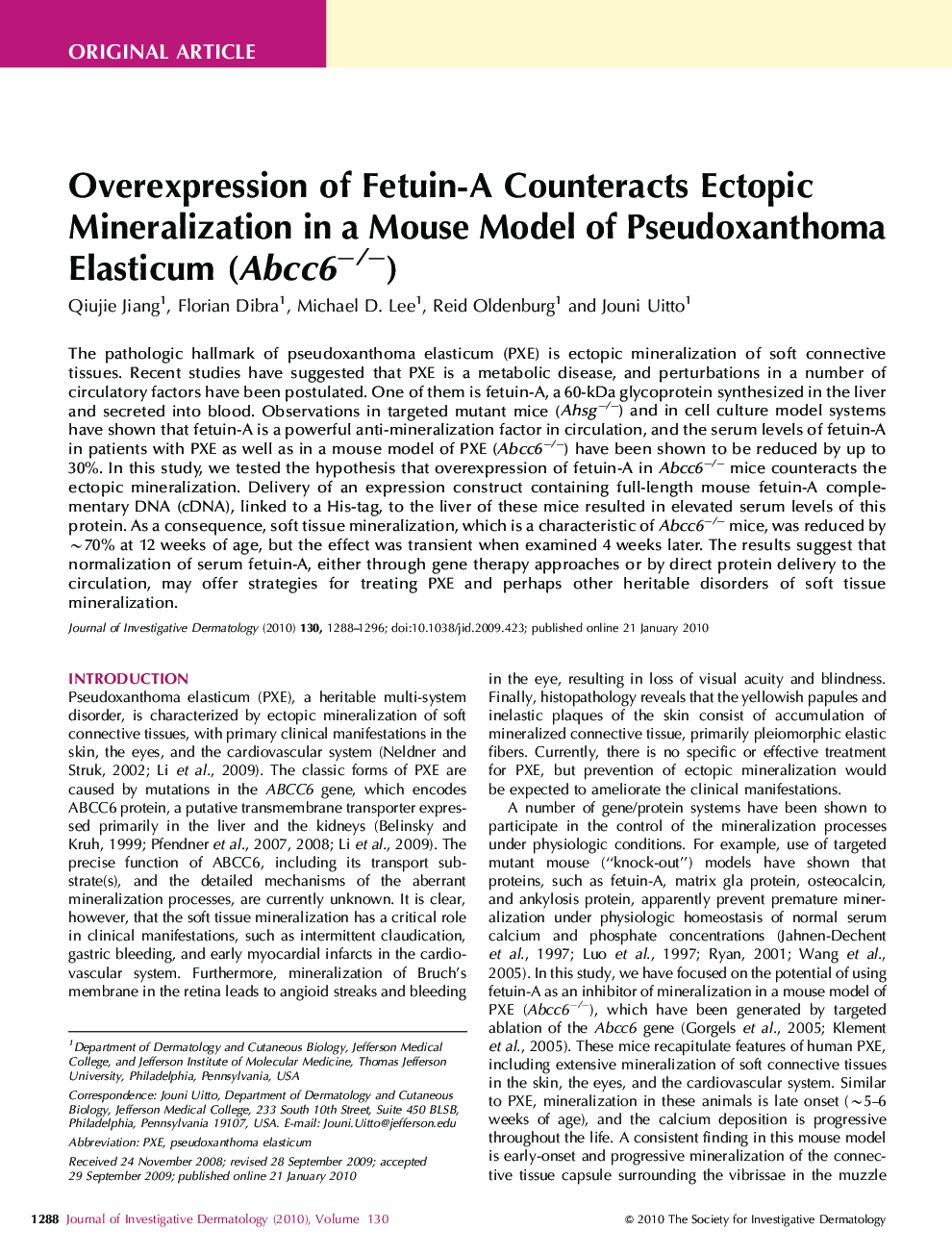| Article ID | Journal | Published Year | Pages | File Type |
|---|---|---|---|---|
| 3217092 | Journal of Investigative Dermatology | 2010 | 9 Pages |
The pathologic hallmark of pseudoxanthoma elasticum (PXE) is ectopic mineralization of soft connective tissues. Recent studies have suggested that PXE is a metabolic disease, and perturbations in a number of circulatory factors have been postulated. One of them is fetuin-A, a 60-kDa glycoprotein synthesized in the liver and secreted into blood. Observations in targeted mutant mice (Ahsg−/−) and in cell culture model systems have shown that fetuin-A is a powerful anti-mineralization factor in circulation, and the serum levels of fetuin-A in patients with PXE as well as in a mouse model of PXE (Abcc6−/−) have been shown to be reduced by up to 30%. In this study, we tested the hypothesis that overexpression of fetuin-A in Abcc6−/− mice counteracts the ectopic mineralization. Delivery of an expression construct containing full-length mouse fetuin-A complementary DNA (cDNA), linked to a His-tag, to the liver of these mice resulted in elevated serum levels of this protein. As a consequence, soft tissue mineralization, which is a characteristic of Abcc6−/− mice, was reduced by ∼70% at 12 weeks of age, but the effect was transient when examined 4 weeks later. The results suggest that normalization of serum fetuin-A, either through gene therapy approaches or by direct protein delivery to the circulation, may offer strategies for treating PXE and perhaps other heritable disorders of soft tissue mineralization.
